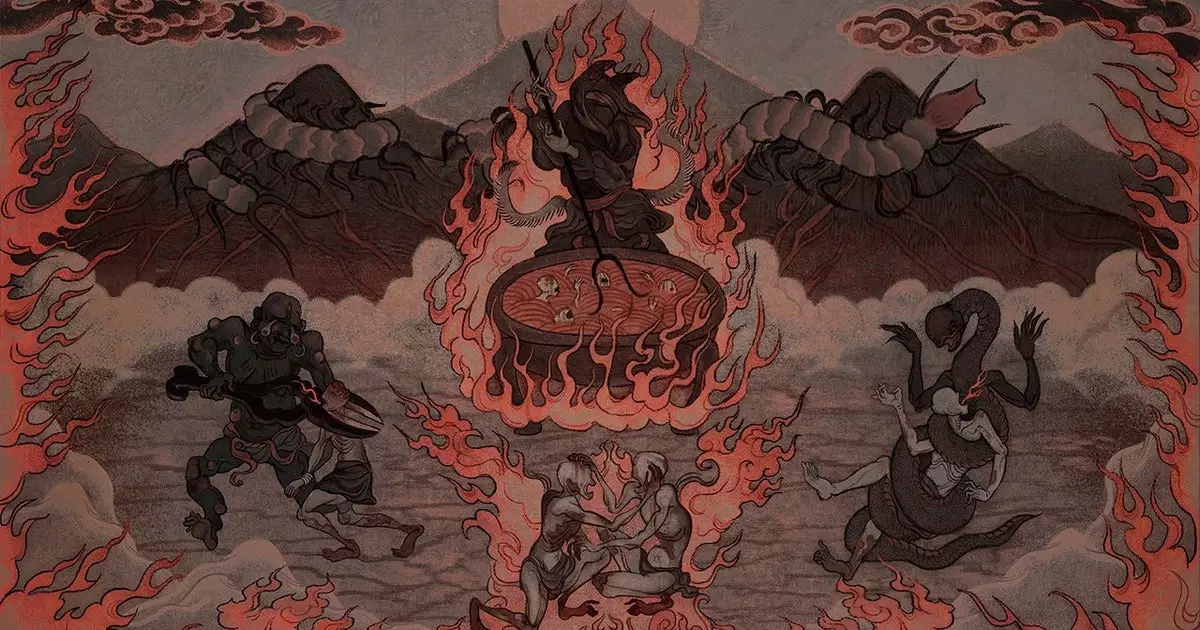In the ever-evolving landscape of video games, certain titles emerge that encapsulate a sense of dread, forcing players to confront the darkest corners of their own psyches. “Labyrinth Of The Demon King” is one such game, drawing inspiration from horror titans like “Silent Hill” and “Amnesia: The Dark Descent”. However, rather than simply rehashing established horrors, it crafts a unique, guttural experience that feels like an immersion into a fever dream of feudal Japan. The game isn’t just scary; it’s a visceral exploration of desperation, frailty, and haunting atmosphere.
The game’s premise takes place in a mythical version of feudal Japan, where players are tasked with a perilous mission: to find and defeat a yokai boss responsible for leading their lord to a catastrophic ambush. This narrative spirals into a tapestry interwoven with vivid imagery and gripping mechanics. Players navigate grotesque environments filled with grotesque creatures, capturing the essence of horror in its raw, untamed form. As you traverse through dilapidated houses and encounter bizarre foes, the dread seeps in, leaving no stone unturned in your psychological landscape.
Combat that Challenges and Frustrates
At first glance, the combat mechanics in “Labyrinth Of The Demon King” might seem derivative, echoing the stamina-based system reminiscent of classic titles like From Software’s “King’s Field.” But there’s a distinct layer that adds complexity to the experience. Players utilize a range of strategies to fend off grotesque monsters, employing cunning maneuvers while managing scarce resources. The combat mechanics are not merely about attacking; they’re a precarious dance of survival, using the environment to your advantage, such as kicking enemies or using stealth tactics to navigate harrowing encounters.
However, the game’s harsh unforgiving nature often stymies progress, leading to moments of frustration that can not only test player resolve but also deepen the immersive experience. The grotesque design of enemies—creatures of twisted flesh and short limbs—echoes a chaotic world where survival relies on cunning. Each victory feels hard-won, as if you’ve survived a near-fatal encounter, rendering the stakes immeasurably high in this grotesque interplay of life and death.
An Environment as Hostile as the Enemies
The setting itself is a character within “Labyrinth Of The Demon King.” Each house, corridor, and room serves to heighten the feeling of anxiety and dread. The graphics invoke a retro sensibility reminiscent of PS1 horror titles, yet they do so with an atmospheric fidelity that enhances every chilling moment. The visuals aren’t polished, but that adds to the ambience—an unsettling, disorienting experience akin to gazing into a murky abyss. The sound design expertly amplifies this unease; rattling noises and unsettling whispers haunt your steps as you tread a path rife with encounters that leave you questioning your sanity and intentions.
The cluttered, dark passages and the doom-laden soundscape encapsulate the game’s overall philosophy: to plunge players into a labyrinth that feels both familiar and disturbingly alien. With save points manually set and a myriad of locked doors, players are encouraged to explore—yet every turn carries with it the potential for disaster. It perpetuates a constant state of fear that keeps players on edge, aware that they are mere intruders trapped in a hellish domain ruled by unsettling presences.
Connection to Classic Horror with a Modern Twist
What sets “Labyrinth Of The Demon King” apart from its contemporaries is not solely its homage to predecessors but rather how it interprets these influences to create something terrifyingly original. While it wears its inspirations on its sleeve, it manages to evoke a sense of mystery that feels uniquely its own. The decision to have a blacksmith trapped in a pantry, the bizarre cat that holds the key to progression, and the tongue-in-cheek humor that seeps through moments of insane panic add layers to an otherwise bleak setting. The balance of darkness and levity keeps players engaged, ensuring that the next horrifying encounter feels obligatory yet compelling.
This game successfully transcends straightforward horror; it intertwines moments of introspection and strategy within its chaotic framework. Each play session feels more like unraveling a mythological mystery than simply trying to survive, making it a fascinating exploration of the psychological terrors embedded in intricate narratives and grotesque encounters. The pain of the protagonist becomes palpable, pulling players deeper into this labyrinth, evoking empathy even in the most horrifying circumstances.
So while initially, “Labyrinth Of The Demon King” may seem like a hellish tribute to historic horror games, its ability to evoke emotions and create a gripping atmosphere solidifies its status as a worthy entry in the horror game genre. The nightmare may be oppressive, but the allure remains undeniable, creating an experience that will linger long after the controllers are set down and the world outside the game resumes its vivid reality.


Leave a Reply